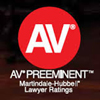592. Continuances
Denial of motion for continuance was not abuse of trial judge’s discretion where all parties knew of possibility that plaintiff seaman might be absent and trial judge had provided alternative method of perpetuating seaman’s testimony for use at trial by ordering deposition of seaman and any other witnesses who might be aboard ship on high seas at time case was reached for trial. Lamb v Globe Seaways, Inc. (1975, CA2 NY) 516 F2d 1352.
Pendency of limitation of liability action under 46 USCS Appx § § 181 et seq. is grounds for continuance of state court action by seaman under 46 USCS Appx § 688 where both actions involve same incident. Reid v Crain Bros. (1961, La App 3rd Cir) 134 So 2d 917.
593. Directed verdicts and judgments n. o. v.
State of law applicable to maritime oil workers has developed to point where it is proper in appropriate Jones Act (46 USCS Appx § 688) case for district judge to direct verdict on status of offshore worker as seaman under § 688. Marine Drilling Co. v Autin (1966, CA5 La) 363 F2d 579.
In Jones Act (46 USCS Appx § 688) case, trial court can direct jury verdict against seaman only in those extremely rare instances where there is zero probability either of employer negligence or that any such negligence contributed to injury of seaman. Southard v Independent Towing Co. (1971, CA3 Pa) 453 F2d 1115.
Admiralty suits for personal injury are conducted with extraordinary solicitousness for seamen, and directed verdict for defendant in such case is rare. Santana v United States (1977, CA1 Puerto Rico) 572 F2d 331.
594. –Standards for granting or denying
Reasonable man standard in ruling on motions for directed verdict does not apply to 46 USCS Appx § 688 claim; in § 688 cases more severe FELA standard is held appropriate. Allen v Seacoast Products, Inc. (1980, CA5 La) 623 F2d 355, 6 Fed Rules Evid Serv 536 (disagreed with by multiple cases as stated in Nix v Kansas City S. R. Co. (CA5 Tex) 776 F2d 510).
Court can direct verdict or grant judgment n. o. v. on 46 USCS Appx § 688 count only where there is complete absence of probative facts supporting non-movant’s position. Gaspard v Taylor Diving & Salvage Co. (1981, CA5 La) 649 F2d 372, reh den (CA5 La) 656 F2d 700 and cert den 455 US 907, 71 L Ed 2d 445, 102 S Ct 1252. Springborn v American Commercial Barge Lines, Inc. (1985, CA5 La) 767 F2d 89 (disagreed with by multiple cases as stated in Nix v Kansas City S. R. Co. (CA5 Tex) 776 F2d 510).
In 46 USCS Appx § 688 action court may not use “reasonable minds” standard to determine directed verdict. Lambert v Diamond M Drilling Co. (1982, CA5 La) 683 F2d 935, reh den (CA5 La) 688 F2d 1023.
Jones Act (46 USCS Appx § 688) incorporates FELA (45 USCS § § 51 et seq.) standard, under which directed verdict against plaintiff is proper only when there is complete absence of probative facts; however, extremely low evidentiary standard applies only to questions of liability or damages once claim is within Jones Act; FELA standard is not applicable to threshold issue of seaman status. Wallace v Oceaneering International (1984, CA5 La) 727 F2d 427.
Although defendant’s motion for directed verdict in Jones Act case will be denied if there is slight evidence supporting plaintiff, and defendant’s motion for judgment n.o.v. will be denied if jury has decided for plaintiff and defendant seeks to escape verdict, plaintiff will prevail on its own motion for directed verdict or its motion for judgment notwithstanding verdict in favor of defendant only if facts and inferences point so strongly in his favor that court believes reasonable men could not arrive at contrary verdict. Springborn v American Commercial Barge Lines, Inc. (1985, CA5 La) 767 F2d 89 (disagreed with by multiple cases as stated in Nix v Kansas City S. R. Co. (CA5 Tex) 776 F2d 510); Smith v Trans-World Drilling Co. (1985, CA5 La) 772 F2d 157.
Under Jones Act, showing required to overturn jury verdict is more stringent than in case of general negligence claim; directed verdict or judgment notwithstanding verdict may be granted only when there is complete absence of probative facts supporting nonmovant’s position. Boyle v Pool Offshore Co., Div. of Enserch Corp. (1990, CA5 La) 893 F2d 713, reh den (CA5) 1990 US App LEXIS 4462.
Jury award in favor of Jones Act plaintiff must be upheld against motion for judgment n.o.v. where plaintiff, chief engineer on defendant’s tanker, claimed he suffered coronary artery disease requiring triple bypass surgery as consequence of defendant’s negligence in failing to provide safe workplace and resulting unseaworthiness of ship, since court cannot conclude that no reasonable jury could have reached conclusion that condition of tanker contributed to plaintiff’s injury, even though court finds more persuasive defendants’ expert’s opinion that coronary artery disease was not caused by working conditions. Gorman v Prudential Lines, Inc. (1986, SD NY) 637 F Supp 879.
595. Summary judgments
Inquiry whether employee is seaman within meaning of 46 USCS Appx § 688(a)) is mixed question of law and fact, and it often will be inappropriate to take question from jury; nevertheless, summary judgment or directed verdict is mandated where facts and law will reasonably support only one conclusion. Harbor Tug & Barge Co. v Papai (1997, US) 137 L Ed 2d 800, 117 S Ct 1535, 97 CDOS 3507, 97 Daily Journal DAR 6021, 1997 AMC 1817, 10 FLW Fed S 433.
Because question of seaman status is mixed question of law and fact, it is rare that answer will be so clear as to be subject to summary judgment or directed verdict, although it is possible that question may be one which need not go to jury. Graham v Milky Way Barge, Inc. (1987, CA5 La) 824 F2d 376.
Summary judgment entered against one defendant in Jones Act case was made final and appealable on date consent judgment was entered disposing of remaining defendants. Levron v Gulf International Marine, Inc. (1988, CA5 La) 854 F2d 777.
Substantial issues of fact, precluding summary judgment, existed in action by ship engineer seeking to recover for hearing loss allegedly occasioned by repeated exposure to loud noises in engine rooms, where question whether plaintiff knew or had reasonable opportunity to discover cause of hearing loss at least 3 years before he filed suit remained indispute. Smith v States Marine International, Inc. (1989, CA5 La) 864 F2d 410.
Claim presents genuine issue of material fact precluding summary judgment where plaintiff claims that employer’s agents failed to exercise reasonable care when they undertook to escort intoxicated seamen from bar across hazardous dock to dangerous gangplank, and when they undertook to search for him after his disappearance. Daughenbaugh v Bethlehem Steel Corp., Great Lakes S.S. Div. (1989, CA6 Ohio) 891 F2d 1199, 15 FR Serv 3d 400.
Summary judgment in Jones Act cases is rarely appropriate and determination should ordinarily go to jury; but summary judgment is proper where underlying facts are undisputed and record reveals no evidence from which reasonable persons might draw conflicting inferences about facts. Bogan v Barge T-13315B (1985, ED La) 607 F Supp 85.
Since seaman status is fact-sensitive issue, summary judgment in Jones Act cases is rarely appropriate; but in some cases, court may conclude that no evidentiary basis exists to support finding that injured employee is Jones Act seaman. Hines v Saylor Marine Corp. (1985, SD Ga) 615 F Supp 33.
Summary judgment will be denied where there is genuine issue of fact concerning frequency and purpose of plaintiff’s work aboard defendant’s vessels for purpose of establishing his status as seaman. Koon v Lakeshore Contractors (1988, WD Mich) 128 FRD 650, affd (CA6 Mich) 889 F2d 1087.
Employer is denied summary judgment on basis of plaintiff’s lack of seaman status, where seaman status is generally question of fact certainly not answered definitively by employer’s self-serving and conclusory affidavit that it “has never owned, controlled, or operated offshore drilling rigs, platforms, or inland barge rigs” as “fleet,” because, by filing this meritless motion at this late stage of proceedings, conduct of employer’s attorney teeters precariously on edge of FRCP 11 abyss. Grayson v Petro-Drive, Inc. (1996, SD Tex) 912 F Supp 258.









